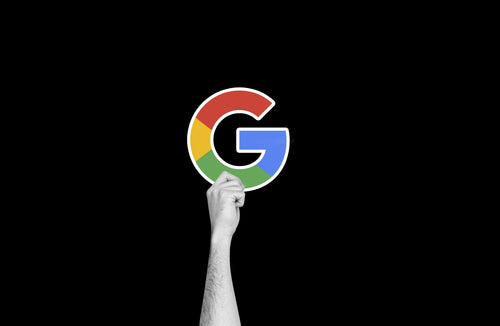If you've used Google recently, you've probably noticed a significant change in the results that appear on your desktop or mobile device: AI Overviews, the results that Google generates using artificial intelligence and displays at the top.
It's just been a month in Spain since this new Google feature was launched, which will undoubtedly revolutionize the world of SEO , that is, organic positioning .
Although this isn't the first time the search engine giant has introduced changes that have made more than one SEO professional nervous, with its AI Overviews, Google has already made it clear that artificial intelligence is its present and future .
That's why, in this article, we explain what Google AI Overviews are, how they work, what impact they'll have on SEO, and how you can prepare now to remain visible and competitive in an environment increasingly dominated by artificial intelligence.
What are Google AI Overviews?
AI Overviews (formerly known as Search Generative Experience, or SGE) is a new Google search feature that automatically generates AI-powered summaries at the top of the search results page (SERP).
These summaries offer a direct, natural, and structured response to user questions, drawn from multiple web sources.
But more importantly, users can find the information they need without clicking on any traditional results. Google, using its language models (such as Gemini), analyzes relevant pages and constructs a kind of "master answer" that attempts to succinctly cover what previously required visiting multiple sites.
In many cases, these answers include links to the pages used as sources , but not always.

How do AI Overviews work?
AI Overviews aren't static snippets or rich blocks like the now-classic "More Questions," but rather a live, dynamic response built by AI. Their operation involves:
- Advanced semantic understanding of the user query.
- Crawling multiple sources of information (web pages, databases, etc.).
- Generation of an original text that synthesizes and organizes information in natural language.
- Inclusion (or not) of reference links to the websites used as sources.
Ultimately, the goal is to ensure that users don't have to click through if they don't want to : they'll already have the answer to their question in the AI results. This means a loss of visibility for many websites, even if they indirectly contributed to the generated answer.
Google: A Content Thief?
For now, the types of queries that generate results using artificial intelligence are informational , that is, searches such as "what," "how," "where," "when." The impact seems to be null on transactional or navigational queries (at least so far), which is logical, since the intention behind these queries is to purchase a product or visit a specific website.
In the case of informational queries , Google can be seen as a "content thief" in the sense that, thanks to the AI that users continue to feed, it has become yet another competitor within the SERP. And it's not just any competitor, but the search engine itself.
Looking at the type of searches most "affected" by AI, it's clear that the websites that will notice the greatest drop in traffic will be those that primarily rank for informational queries , while those that rank for transactional searches shouldn't see major changes, at least in terms of AI Overviews, and not other SEO factors.
What impact will AI Overviews have on SEO?
SEO has never worked the same way : it has undergone many changes over time. So, to understand the impact of AI Overviews, we must first look back and see how SEO worked before the emergence of this new layer of artificial intelligence. Until now, in a nutshell, SEO was based on :
- Respond to search intents through relevant and optimized content.
- Position web pages in the top 10 results on Google, ideally in the Top 3.
- Get clicks with attractive titles and eye-catching descriptions (meta descriptions).
- Use on-page (structure, semantics, keywords) and off-page (link building) techniques to increase authority.
- Measure success based on CTR, organic traffic, and conversions.
For years, SEO experts have optimized their content and structure by considering how Google crawls, indexes, and displays results . But with AI Overviews, as we mentioned before, Google no longer just displays content: it creates it . And that changes everything.
The implications for SEO are profound, structural, and urgent. Some of the most important consequences are:
1. Drop in organic traffic for informational searches
If Google already provides the answer in the SERP, many users won't click on any links . This especially affects pages that answer questions or provide basic information (FAQs, blog posts, definitions, etc.).
2. Fierce competition to be cited in the Overview
Appearing as a source within an AI Overview will be the new "top 1." But Google won't assign it based on ranking position, but rather on topical authority, content quality, accuracy, and semantic relevance.
3. It's harder to stand out with technical optimization alone.
Content generated with generic formulas or keyword stuffing will lose even more relevance. Google will reward originality, specialization, and demonstrated experience in content .
4. Redefining search intent
Many searches that were previously informational will now be resolved in AI Overview. This will force websites to focus more on transactional or experiential intents : reviews, comparisons, in-depth tutorials, visual or downloadable content, and so on.
5. Need to build a strong brand
If clicks aren't generated through content, they will need to be generated through brand trust. Companies with a presence, reputation, and community will have a better chance of being selected even if their content isn't in the Overview.

How to Adapt to AI Overviews: The New SEO
With the above in mind, webmasters will have to adapt to this new reality if they don't want to see their clicks and conversions become a fond memory.
Some of the strategies focused on appearing in the AI Overviews are the following:
1. Bet on content with added value
Google will only use your content as a source if it's clear, useful, well-structured, and original. Work with experts, provide up-to-date information, use real-life examples, and avoid filler .
2. Implement EEAT (Experience, Expertise, Authoritativeness, Trustworthiness)
Reinforce the experience and credibility of your authors, sign off on content, link to quality sources, and provide evidence (studies, figures, etc.).
3. Take care of semantics and context
Use a clear structure (H1, H2, H3), complete and precise sentences, and don't overuse keywords . Semantic SEO and related entities will be key to helping Google fully understand your topic.
4. Diversify formats: video, podcast, downloadable
Visual or interactive content won't be easily replaced by AI . A downloadable guide, a video tutorial, or a personalized test may be more engaging than an overview.
5. Think about branded search and direct traffic
Invest in your brand: SEO isn't just about content, it's also about reputation, design, user experience, community... Make sure people search for you directly or recognize your name in the results .
Is SEO dead, again?
If those of us who have been in SEO for years had been given a euro every time we heard that SEO was dead, we probably wouldn't even have to worry about changes at Google anymore.
So, as we always say in these situations, NO, SEO is not dead , it's just following its natural path: mutating towards a more "AI-dominated" model , something that is happening across the entire technological field, as, ultimately, is marketing.
It's true that AI Overviews represent one of the biggest disruptions in the history of search engines, but it's also true that those who adapt quickly will have a huge competitive advantage.
Now, more than ever, good SEO involves understanding how Google interprets and generates content, not just how it sorts it , abandoning "old" practices like obsessing over repeating keywords or creating low-quality backlinks, among many others. The goal , then, is clear: work on SEO so that Google shows your content in the AI Overview, the new "Top 1" we all want to reach .
Still not ready for AI Overviews?
SEO pessimists see AI Overviews as the end of organic traffic. SEO optimists see them as a new opportunity to differentiate themselves from the rest.
That's what we've been doing for years in Maktagg 's SEO department: helping brands grow organically on Google, paddling with the current no matter how many storms there are in the algorithm.
Are you afraid of seeing your organic traffic and conversions sink into the sea of AI? Don't worry, at Maktagg we'll keep you afloat.




 https://maktagg.com/blogs/blog-marketing-digital
https://maktagg.com/blogs/blog-marketing-digital










